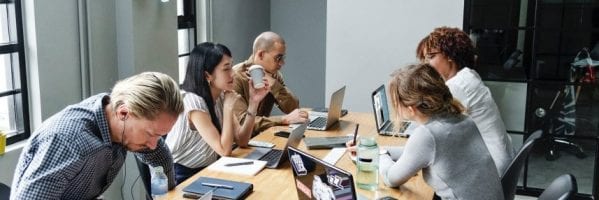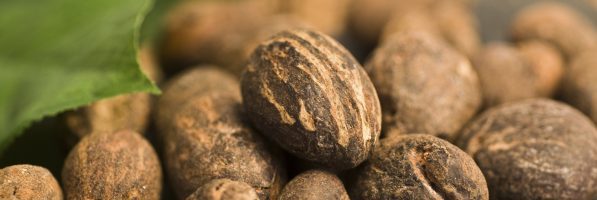Harvard Talks Managing Disorganized Employees, and More – Boston News

Let’s explore some of the most interesting stories that have emerged from Boston business schools this week.
How to Manage Someone Who Is Totally Disorganized – Harvard Business Review
Disorganized employees can be wellsprings of frustration, but there are ways to help them better understand how disorderly tendencies impact others.
Harvard Business School‘s Rebecca Knight recently discussed strategies in HBR, addressing root behavior causes and ultimately develop better systems to manage workloads.
“’Is this person’s approach creating negative outcomes, or is it just a style difference?’ If your report indicates ‘disorganized but otherwise reliable, you may have to back off.'”
Rosie Perez (not the actor), Lead Financial Officer of Global Consumer Business Planning and Analytics at American Express, adds, “It takes a lot of time to change ingrained behavior, but it can be addressed. Most importantly, as leaders, it is our job to help coach our colleagues [with] constructive and pointed feedback.”
You can read more about the research here.
Bye-Bye Ivory Tower: Innovation Needs an Ecosystem to Thrive by Tracy Mayor – MIT Sloan Ideas Made to Matter
Innovation is not exclusively indigenous to Silicon Valley. We continue to see exciting developments in London, Tel Aviv, New York, Boston, China, Nigeria, Ghana, and South Africa. However, despite the benefits of globalization, the world of innovation is not wholly flat.
New MIT Sloan research has determined that there are geographic hotspots, or “innovation ecosystems,” where ideas move more easily from inception to impact.
Phil Budden, a Senior Lecturer Specializing in Innovation and Entrepreneurship, notes how the traditional “triple helix” that has long driven innovation—university, government, and corporations—is now joined by two additional players: entrepreneurs and risk capital.
“It’s so important to have innovation-driven entrepreneurs involved. They’re producing the companies of the future. You can’t just have today’s companies [in an ecosystem], you need to have those leaders who are going to produce future companies.”
Fiona Murray, Associate Dean for Innovation, urges corporations to take advantage of startups and entrepreneurs to help experiment on their behalf.
“What these startups tend to do very well is define, order, and test their assumptions through a series of what we call ‘innovation loops. So, one of the benefits of going from a purely internal research and development process to working externally is that you can really rely on the universities and startups in an ecosystem to do that experimentation for you.”
You can read more about global innovation here and watch the recent discussion below.
Joy Field Garners Top Award from Decision Sciences Institute by William Bole – Carroll School News
BC Carroll School of Management Associate Professor of Operations Management Joy Field has received the highest honor bestowed by the Decision Sciences Institute (DSI), a global society of more than 1,800 scholars dedicated to fostering knowledge for better managerial decisions.
Field was named the 2018 co-recipient of the Dennis E. Grawoig Distinguished Service Award, named for a founder of the 50-year-old Institute. The other recipient was Morgan Swink of Texas Christian University.
DSI President Johnny Rungtusanatham of Ohio State University asserts, “This is a highly competitive distinction awarded to those who have made a continual impact on the Institute and the disciplines it serves.”
Field reflected on her two decades of involvement with the Institute. “DSI has been a major contributor to all aspects of my professional development—publishing, teaching, and service—and I am delighted to have been chosen to receive this award from among the many colleagues who have also contributed so much to DSI.”
Find out more about the recent award here.
Lehigh Student Startup Kickstarts Ghanian Shea Industry

When it comes to startup companies, often the best route of success means going right to the source. For Lehigh University College of Business and Economics grad Miles J. Davis’ (’16), that meant traveling all the way from Bethlehem, PA, to West Ghana for the purest shea butter in the world.
Shea butter is famous for its cosmetic and skincare applications, as well as its uses in waterproofing waxes, cooking oils, wood preserving, toilet tissue, and candle-making. Shea butter is produced by extracting fat from the nut of the fruit of the shea tree, which is indigenous to the dry Sahel region of Africa, which spans northern Ghana, Senegal, Ethiopia, and the Democratic Republic of Congo.
In his master’s thesis, Davis outlined a plan to develop an ecologically, agriculturally, and financially sustainable production system for shea butter processing in Ghana.
“My dream for this project is to help develop a permaculture system that will have a collective positive impact,” Davis tells Lehigh. “Permaculture is a whole functioning system where everything coexists in balance. It requires a lot of observing and listening to learn how natural systems work and how to make human systems function just as organically and just as naturally.”
Davis’ research focuses on land-use policy. “Who owns the land? Who can get access to shea trees to make shea butter from the shea nuts? What policies are in place to protect these forests so people don’t cut down the trees to get firewood for their cook stoves? How do we develop better roads and transportation methods for people living in this region so they can get to the main market and sell their stuff?”
Superior Shea is just one small step in Davis’ vision for an economically emerging Ghana.“Ghana has one of the strongest economies in Africa. It is definitely on the rise. There’s a lot of potential for growth, in terms of sustainability through business, improved infrastructure and sanitation.”
You can read more of Kurt Pfitzer’s in-depth interview with Davis here and get more familiar with Superior Shea on Facebook.
Stanford Seed Interns at West African Mobile Tech Firm

Stanford’s Graduate School of Business recently published an article about the experience of Stanford Seed Musila Munuve’s recent internship at Ghanaian mobile technology company SMSGH, which creates “mobile solutions for different companies.”
Smith School Takes First Prize at Emerging Markets Case Competition

The Smith School of Business hosted the Second Annual Emerging Markets Case Competition earlier this month. According to the Smith School, eight teams from seven MBA programs around the country participated in an intense 24-hour preparation and presentation. Each team was tasked with providing recommendations to the International Finance Corporation (IFC) on a specific case involving the economic sustainability strategy of a mining company in Ghana. Continue reading…
Winners of 24th Annual Kogod Case Competition Named

Last week, we wrote about the 24th Annual Kogod Case Competition, one of the premier annual events hosted by the Kogod School of Business each spring semester. Continue reading…
